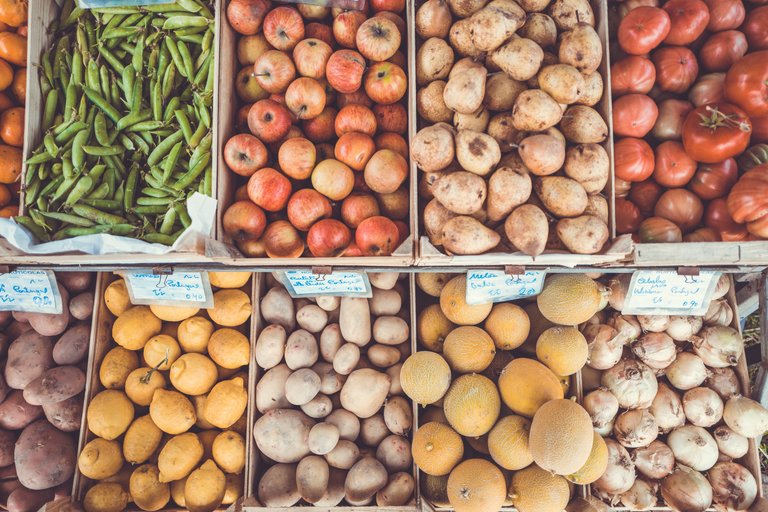
The last decade has seen a greater demand for organic food, but the majority of the population will still find it hard to afford a fully organic diet. This is mainly because the production process of organic food takes more time than non-organic food. Another reason is that organic farms are typically smaller and less in numbers than conventional farms, where organic farmland only accounts for 0.9% of total worldwide farmland. Unfortunately, because the supply of organic produce is not growing as fast as the demand for them, a price rise takes place.
The general advice, then, is to buy organic as far as your financial means allow. Whether that is going fully organic or only switching to certain organic foods, such as meat and dairy. For example, if someone is consuming meat 3-4 times per week it would be especially advisable to consume certified organic meat, which will not contain any chemical additives, antibiotics and growth hormones.
Regarding chemical additives, almost 3,000 of them are approved for use in food. When it comes to non-organic fruit and vegetables, the use of pesticides can have a serious negative impact on human health. Non-organic farmers spray synthetic pesticides on crops to kill weeds and insects, however the actions of these chemicals cannot be restricted to one species so they harm organisms other than pests, including humans. But it’s not just about avoiding the risks of non-organic food; organic produce also has further advantages that make it a favourable option. The findings of a study at Newcastle University showed that organic food contains higher levels of antioxidants, essential in strengthening our immune systems.
Chemical additives also extend to the meat industry. In order to add weight and extend shelf life, non-organic beef producers have started injecting a solution containing sodium phosphate into the meat, as well as hydrolyzed proteins in the lean cuts to make up for the flavour loss from fat reduction. These hydrolyzed proteins contain MSG, known to have adverse effects such as headaches and stomach discomfort. However, MSG is not necessarily listed as an ingredient when coming from the hydrolyzed proteins. We are thus not fully aware of what we consume.
It is normal to provide animals with medication if sick, however, in many non-organic meat production facilities the animals receive an extortionate amount of antibiotics. If it is known that we should avoid antibiotics as much as we can, why should we consume them through our meat? It is better for our bodies to choose organic meat when possible, and animals in organic farms have stronger immune systems thanks to the way they are raised, therefore antibiotics are not needed. Notably, if an animal does get sick in organic farms, it must be removed from the herd until all medication has cleared the body, and a buffer period has passed. In the need of antibiotics, the animal is removed from the herd.
As for hormones in non-organic meats, there are six FDA approved hormones for use in the beef industry: three synthetic (melengestrol acetate, trenbolone acetate and zeranol), and three natural (estradiol, progesterone and testosterone). The hormones are used to speed the growth of the animals thus accelerating production and reducing feed costs. In the scientific community the belief is that there is a potential for these types of hormones to cause reproductive and metabolic problems in humans.
Although organic produce is more expensive, given the risks with non-organic food, it is certainly an option worth considering and taking as far as is financially possible. Worth bearing in mind is that certain produce, such as avocados and grapefruit, do not absorb as much pesticides as others, so we can prioritise spending on other organic foods.
Sources:
http://www.natural-and-organic-choices.com/organic-meat.html
http://www.toxipedia.org/display/toxipedia/Effects+of+Pesticides+on+Human+Health
http://www.healthychild.org/five-essential-facts-about-pesticides-on-fruits-and-vegetables/